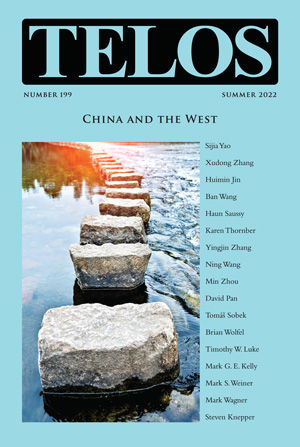 By appealing to our common humanity, the idea of human rights and the idea of a “community of common destiny for mankind” promoted by the Chinese Communist Party seem to be referring to the same thing. Yet the two ideas are clearly opposed to each other, since the goal of the second idea is to supplant the first one. By opposing the idea of human rights and an existing international order that values the autonomy of nation-states and the rule of law, the Chinese Communist Party’s version of common humanity envisions a subordination of international order to Chinese power. One response to these opposing views of the meaning of common humanity would be to deny that such an idea might have any legitimacy at all and to then conclude that the only commonality we share would be a will to power. This stance, by denying the possibility of a common set of values, would undermine attempts at cultural exchange and comparison, as well as the legitimacy of any critique. The human rights ideal, by contrast, begins with recognizing, at a minimum, those transgressions that all humans seek to avoid, including torture, genocide, and enslavement. Such agreement provides the first step for a cultural comparison, which cannot begin until we define a common value. By defining such a value, it becomes possible to compare different manifestations of that value as well as to formulate a critique. In a follow-up to last week’s podcast with Sijia Yao, this week’s podcast with Xudong Zhang addresses the role of the idea of a common humanity for establishing the parameters of a cultural comparison between China and the West.
By appealing to our common humanity, the idea of human rights and the idea of a “community of common destiny for mankind” promoted by the Chinese Communist Party seem to be referring to the same thing. Yet the two ideas are clearly opposed to each other, since the goal of the second idea is to supplant the first one. By opposing the idea of human rights and an existing international order that values the autonomy of nation-states and the rule of law, the Chinese Communist Party’s version of common humanity envisions a subordination of international order to Chinese power. One response to these opposing views of the meaning of common humanity would be to deny that such an idea might have any legitimacy at all and to then conclude that the only commonality we share would be a will to power. This stance, by denying the possibility of a common set of values, would undermine attempts at cultural exchange and comparison, as well as the legitimacy of any critique. The human rights ideal, by contrast, begins with recognizing, at a minimum, those transgressions that all humans seek to avoid, including torture, genocide, and enslavement. Such agreement provides the first step for a cultural comparison, which cannot begin until we define a common value. By defining such a value, it becomes possible to compare different manifestations of that value as well as to formulate a critique. In a follow-up to last week’s podcast with Sijia Yao, this week’s podcast with Xudong Zhang addresses the role of the idea of a common humanity for establishing the parameters of a cultural comparison between China and the West.
Xudong Zhang’s article “China and the West: Methodologies for Comparison” appears in Telos 199 (Summer 2022) and is available at the Telos Online website (subscription required). If your library does not yet subscribe to Telos, visit our library recommendation page to let them know how.



